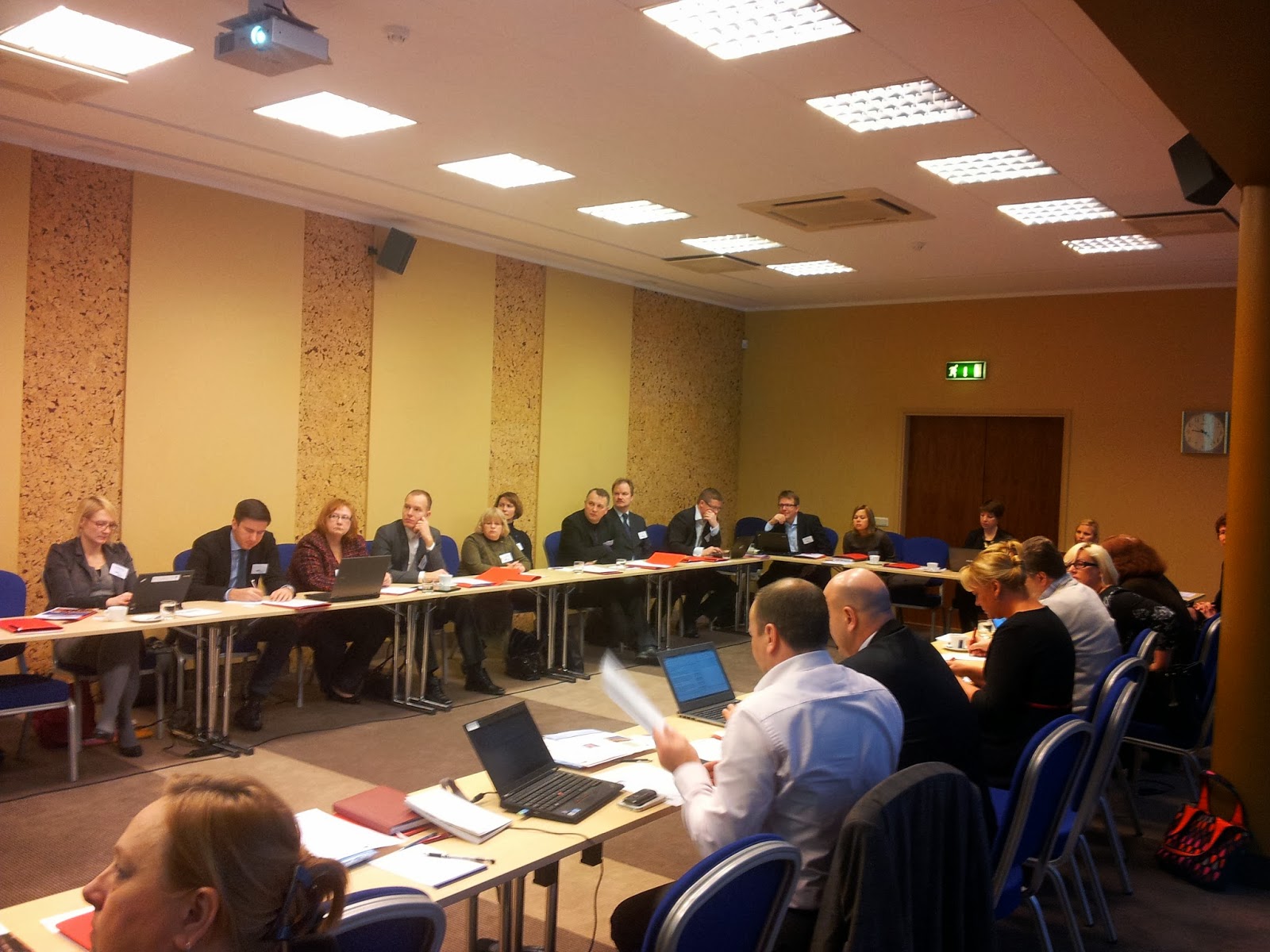As reported
before, central event of PRESTO Final Conference – Helsinki Public Forum “Save the Sea – Investing in Waste Water Management in Belarus” has marked project’s
ending. However, PRESTO partners’ programme included several other meetings and
excursions, taking place during 11-13th of February.
 |
| At Kakkola WTTP. Photo: Nicholas Petroff |
In the
morning before the Public Forum, partners visited Viikinmaki wastewatertreatment plant and Aalto University’s Water Laboratory. The first group went
to the largest WWTP in Finland, the Viikinmäki plant, treating the domestic and industrial wastewater of the capital city and five neighbouring
municipalities. The second group had the opportunity to gain an insight into
the work of Water Laboratory at Aalto University’s School of Engineering, which
is an excellent example of the water sector education in Finland.
 |
| Forum Marinum collection. Photo: Paulius Vaitelis |
The next
day, project consortium headed to Turku, where were scheduled two more excursions
and a ferry cruise to Stockholm. Site visit to Kakkola WTTP enabled
participants to compare the plant with the one previously visited in Helsinki, and
therefore to have a more general idea of the modern waste water treatment in
major Finnish cities. Also, project partners have visited Forum Marinum Maritime
Centre and learned about seafaring and ship-building history of Turku and other
ports in Finland.
The
ultimate exploration took place on the Viking Grace ferry cruiser to Stockholm. The ship, completed in Turku shipyard in 2013, represents the new generation of environment-friendly large scale passenger ferry powered by liquified natural gas.
During the cruise the final Partners seminar was organized to summarize project activities
and achieved results, and finally to get to know the Baltic Sea from the
personal encounter.
“One thing
is to talk about saving the sea that you have never seen with your own eyes,
and a completely different - to commit yourself for improving something that
you have personally experienced” – commented one of the Belarussian partners.
 |
| Baltic Sea. Photo: Nicholas Petroff. |


